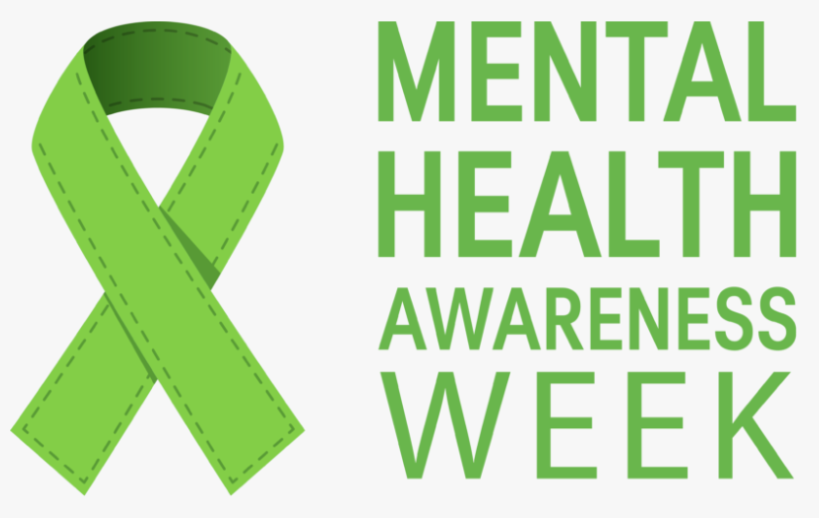Mental Health Awareness Week: Heart and Soul Health
October 31, 2022
The first full week of October is officially labeled as Mental Illness Awareness Week. The goal of this week is to educate as many people as possible on mental health in hopes of bringing light to those in the darkness.
Symptoms of Mental Illness
Some emotional symptoms of mental illness include feelings of emptiness, hopelessness and worthlessness, constant sadness, loss of interests, irritability, anxiety, and suicidal ideations/frequent thoughts of death. Some physical symptoms of mental illness are sleep disturbances, tiredness/lack of energy, reduced or increased appetite, slowed thinking and body movements, dissociation, and trouble remembering things.
Coping Mechanisms and Self-care
Self-care starts with one’s physical needs. Getting enough sleep, eating nutritious meals , and the inclusion of daily exercise or movement is the easiest place to begin a self-care journey. Meeting physical needs ensures people are better able to meet their mental and emotional needs. After establishing a lifestyle that meets a person’s physical needs, mental and emotional needs can be addressed. Some tactics for getting healthy mentally are meditating, taking time off to do something enjoyable, watching movies or listening to music, going to therapy, reflective journaling, and investing in relationships with family and friends. It is important to recognize that this is a process that takes time. Rather than attempting to implement every lifestyle change all at once, choose one or two habits and practice those consistently. Patience and grace are a part of every mental health journey.
LHS Guidance Counselors
Lodi High School also offers resources to support students’ mental and emotional well-being. The guidance counselors are prepared to assist students through a variety of hardships. When asked how they would help students who are overwhelmed by schoolwork or school events, guidance counselor Mrs. Dorfman responded with, “…sitting down with the student and getting a better understanding of what’s causing these feelings….that usually allows me and the student to come up with a plan that will assist them.” Guidance counselor Ms. Werlitz suggests that students attend homework club, get extra help from teachers and peers, and use a google calendar/organizer to assist with scheduling.
In a case when a student’s mental health is affected by another person, Mrs. Dorfman believes that, “Working together with the student in creating a plan that will keep them safe in all aspects is most important.” Ms Werlitz states that her approach is to, “Discuss ways to avoid being in contact with this person.” For students that find themselves having an anxiety or panic attack, Mrs Dorfman and Werlitz both agree that moving to a quiet and safe area would be the first step. From there, a student would be encouraged to practice calming breathing techniques.Finally, further medical attention would be sought depending on the severity. In situations where the medical attention needed exceeds a counselor’s abilities, protocols include calling parents, taking students to a medical physician, and/or contacting the student’s licensed mental health professional if applicable.
What should a student do if help is needed and a guidance counselor cannot be reached? Mrs. Dorfman and Ms. Werlitz both advise students that, “Seeking out a trusted adult or administration is highly recommended. Out of school hours, 9-1-1 should be called for immediate and professional assistance.”
Identifying symptoms in loved ones/ ways to help
Some signs to look for in loved ones include consistent lack of sleep or oversleeping, extreme mood changes, consistent sadness, self-isolation, self harm scars, over or under eating, abuse of substances, and increased confusion or loss of focus. Asking a person who exhibits one or more of these signs if he/she needs help is always the first step in support. People can do kind gestures to lift their spirits, take them out/interact with them more, surround them with things that make them happy, and show them how much they are loved and cared for. If mental issues are more severe or serious, it is important to notify guardians about getting more extensive help. Never leave a person with concerning behaviors alone and remain vigilant in checking up on them to ensure they are okay and not a danger to themselves. It is hard to support a friend who does not want to share feelings. However, it is worth the disruption if it means saving a life.
Online resources
Suicide Hotline: dial or text 1-800-273-8255 OR 988
Crisis Text Line: Text “HOME” to 741741
“Tough times never last, but tough people do.” -Robert H. Schuller








